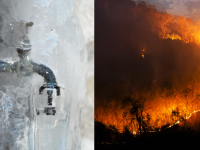Racism as the missing link of international peace

OFTEN ABSTRACT During the twentieth century, the architects of international peace failed to lead on a serious attempt to end racism. At the end of World War I, following on the creation of the League of Nations, there had nonetheless been attempts by some nations, such as Japan. These attempts were doomed since the colonial empires, Western and non-Western, were anchored in discrimination.
The peace architects, including US president Woodrow Wilson, were partaking in segregation, as would, inevitably, the international organisation – as illustrated by the Mandate system. The end of World War II and the creation of the United Nations did not, unfortunately, mark a rupture away from this reality. The relationship between racism and war, and therefore between peace and the end of racism, remained unaddressed – the notion itself, silenced.
European colonialism had not however spoken its last word, and institutionalised racial segregation would continue in the United States until the 1960s, and in more pernicious ways much later to this day. Decolonisation was marked by apartheid in South Africa and in Rhodesia, and by conflicts between local populations, whose past and racialised identity had been ‘invented’ by colonisers – with devastating consequences in the Sudan or Rwanda. Migratory movements towards the former imperial metropolis were ‘dealt with’ by way of discriminatory policies impacting not so much peace amongst nations but within them.
The international dimension of racism remains invisible. And so are its consequences on peace.
Racism thus became the object of often abstract UN tools. It was debated during decolonisation but only in discrete ways. It was raised by some countries, notably the United States, but only selectively. In 1919, 1945, after 1989 and in the wake of 2001, the planetary character of racism was largely ignored., Today, racism continues to be presented and studied as a national or local problem warranting specific solutions, including in academia.
The international dimension of racism remains invisible, as well as its consequences on peace. Too rarely is racism incorporated in conventions on global health, the environment, finance, gender and human rights when it ought to be both a central and transversal theme, particularly when it comes to lasting peace. To remedy that, a paradigm shift is necessary.
The trajectory of the Black Lives Matter movement corroborates the idea that such change has not yet taken place. In spite of the appropriation of the movement around the world, internationalisation of the racism problem has not been put on the global agenda. The attention paid to the problem by the international community was short-lived and the movement is losing steam. Is the international situation to blame – the pandemic, war in Ukraine, climate change? What seems to enjoy historical continuity, however, is the invisibilisation of the international dimension of racism, in particular the relationship between racism and war, ergo racism and peace.
Professors Mohamed Mahmoud Mohamedou and Davide Rodogno analyse the failure of the international community to address racism as a recourse to peace.










